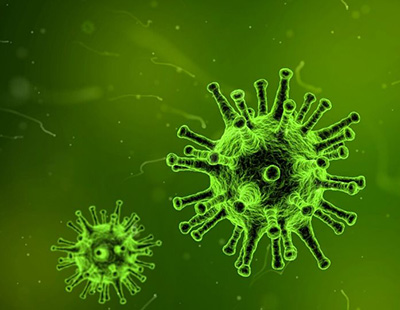Scottish funding supports University’s Covid-19 work

Research on the transmission of the coronavirus, critical aspects of the disease and 3D printing of bespoke PPE receive Scottish Government funding.
Work by three teams at the Roslin Institute, including research to increase understanding of the coronavirus pandemic and measures to tackle it, has been funded by the Scottish Government.
Three awards will support scientists working to track the spread of the virus by looking at its genetic makeup in different areas of Scotland, investigating the effects of severe Covid-19 in the body, and 3D printing personalised protective equipment for healthcare workers.
The rise and fall in Covid-19 cases in Scotland will be tracked as part of a £62,000 project led by Roslin scientist Dr Samantha Lycett.
As transmissions occur, the virus acquires mutations, so the team will compare the virus’ genetic makeup in different areas of the country and combine this with models of the incidence, distribution and spread of the virus in the population.
By looking at this data, they will be able to understand transmission between groups, cities and regions in Scotland, and advise on when the transmission looks to be low enough that social distancing measures could be eased.
” The new coronavirus accumulates mutations over time and these are being sequenced by the Covid-19 Genomics UK Consortium (COG-UK). Even over a few weeks there are sufficient differences between sequences to allow us to infer about patterns of transmission within a country.” said Dr Samantha Lycett, Research Group Leader at the Roslin Institute.
To investigate the effect of the coronavirus in a range of organs in the body and understand how the immune system responds to it, Dr Kenneth Baillie will work on a £160,000 project led by Dr David Dorward and Dr Christopher Lucas from the University of Edinburgh’s Centre for Inflammation Research.
The team will conduct post-mortem examinations of patients to gain detailed understanding of the effects of the disease.
Infected tissue samples will be analysed in a dedicated lab at the Roslin Institute. The project will develop a resource of stored tissue that will support further research in Scotland and internationally.
Dr Kenneth Baillie, Academic Consultant in Critical Care Medicine and the Roslin Institute, University of Edinburgh said ” Our project, led by Dr David Dorward and Dr Christopher Lucas from the University of Edinburgh’s Centre for Inflammation Research, will rapidly answer key clinical questions with regards to the effects of severe Covid-19, so that we can inform hospitals treating patients and identify new treatments.”
Professor Paul Digard will take part in work to rapidly 3D print personalised protective facemasks and visors for healthcare workers treating Covid-19 patients, to World Health Organisation standards. The £84,000 project will be led by Dr Adam Stokes, Senior Lecturer at the University of Edinburgh’s School of Engineering.
Models of healthcare workers’ faces will be generated by using 3D scanning technology, and customised 3D masks printed for each worker. This procedure can be completed within hours using technology placed in hospitals.
Our part in the team is to use our expertise at the Roslin Institute to investigate which materials are best to prevent viral contamination, and can be easily disinfected in line with NHS protocols, so that these masks can be safely reused.
Professor Paul DigardHead of Infection and Immunity Division, the Roslin Institute
Masks currently available for NHS staff do not fit everyone sufficiently to prevent transmission of the virus. Mask designs will be developed and validated by using the same respirator fit-tests used in NHS hospitals ̶ a measure of how well the mask is filtering out aerosolised particles such as the coronavirus.
In total, more than 50 Scottish studies to tackle the virus and its impact will benefit from nearly £5 million of Scottish Government funding.
Jeane Freeman, Health Secretary, Scottish Government added ” This funding enables universities and research institutions to immediately draw on the very best science and methodologies available to build on our understanding of this virus, develop new treatments, stop infection and support people’s mental and physical health.”
The latest funding adds to the Roslin Institute’s ongoing work to tackle the coronavirus.
** The Roslin Institute receives strategic investment funding from the Biotechnology and Biological Sciences Research Council and it is part of the University of Edinburgh’s Royal (Dick) School of Veterinary Studies. **



